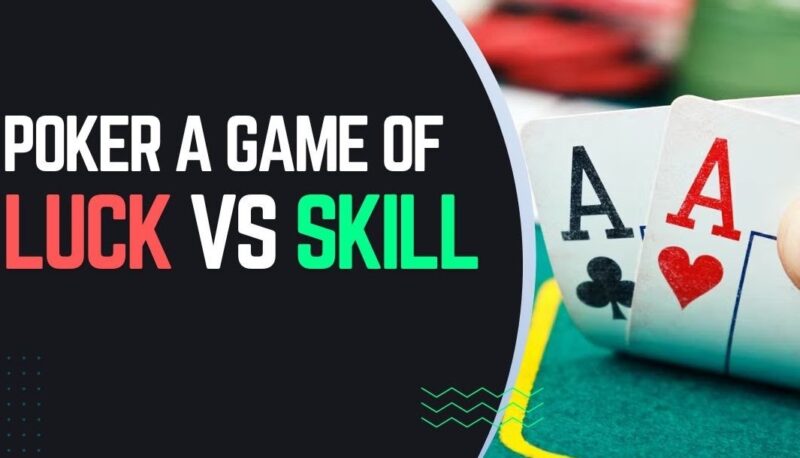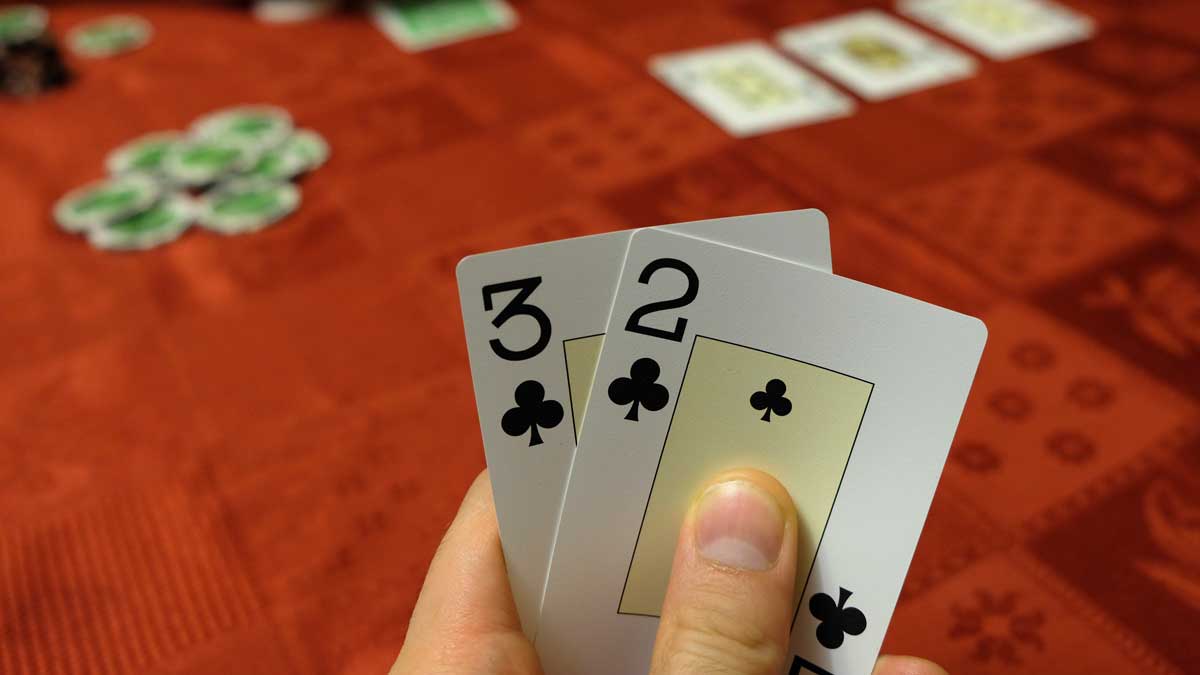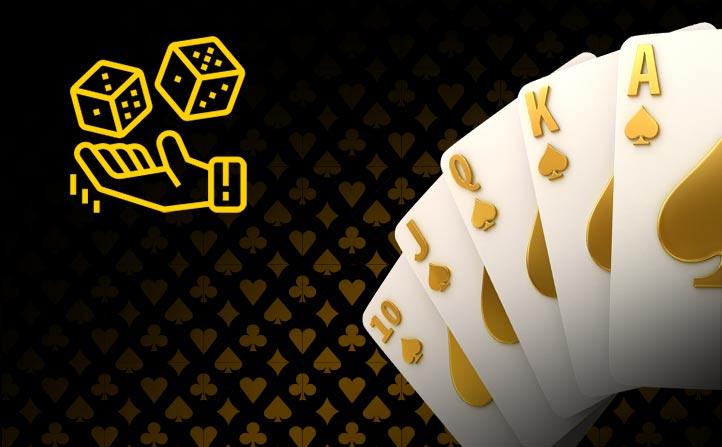Many think holding the “best” hand in poker guarantees a jackpot. That’s far from reality. Poker is a game where probability, strategy, and human psychology dominate the outcome. While a strong hand gives you a head start, it’s only part of the equation. Mastering probability and understanding its role in decision-making will set you apart from amateurs who only rely on luck.
Before we unpack the details, here’s what to expect:
Key Points
- A strong hand is only part of the strategy.
- Probability and odds dictate most outcomes.
- Emotional control keeps bad decisions in check.
- Reading opponents’ patterns can turn games around.
- Bluffing only works when backed by probabilities.
Luck vs. Skill: Where Probability Rules

Luck might get you an incredible hand, but skill determines your success in the long run. That’s where probability comes into play. Every decision at the table can and should be informed by math. Knowing when to fold, raise, or bluff often boils down to your understanding of the odds.
For players seeking smarter strategies, best arabic online casinos such as WhereToSpinin offer insights into games that require both skill and luck.
Practical Example
You’re holding a pair of queens. The flop shows a king, nine, and seven of different suits. What now?
- The odds of your opponent having a king are higher with more players at the table.
- If they raise significantly, the likelihood of them holding a stronger hand increases.
- Probability guides whether you fold, call, or re-raise.
What’s the Big Deal About Probability?
Probability isn’t just abstract math—it’s the framework that guides your decisions. It helps answer questions like:
- What are the chances of improving your hand?
- Should you call a bet based on the pot size?
- Is your opponent’s hand likely stronger than yours?
Key Benefits of Knowing Odds
- Better Decisions: Avoid relying on gut instincts.
- Consistent Performance: Over time, probability ensures more reliable outcomes.
- Confidence Under Pressure: Stay calm when others panic.
Consider a flush draw. You’re holding two clubs, and the flop shows two more. There are nine remaining clubs in the deck. Out of 47 unseen cards, your chance of completing the flush on the turn is around 19%. If the pot odds justify the call, you continue. If not, you fold.
Why Your Strong Hand Might Lose
A strong hand isn’t invincible. The board and your opponents dictate how the game evolves. Say you’re holding pocket kings. If the flop brings an ace, your hand weakens significantly.
Pro Tips for Handling Strong Hands
- Stay Alert: Pay attention to the board. A great hand pre-flop can crumble quickly.
- Don’t Marry Your Hand: Be ready to fold if the odds turn against you.
- Know When to Slow Down: If the board favors draws, play cautiously.
Winning games consistently isn’t about clinging to your starting hand. It’s about knowing when to let go and live to fight another day.
Emotional Control: The Real MVP

Emotions are a poker player’s biggest enemy. Frustration, overconfidence, or desperation often lead to bad decisions. The best players stay grounded and focus on numbers rather than feelings.
Recommendations for Staying Calm
- Deep Breaths: Reset your focus after a bad beat.
- Stick to the Plan: Follow your strategy, no matter how tempting a reckless move might seem.
- Set Limits: Know when to walk away from the table.
Example: Imagine losing a huge pot on a bluff. Instead of chasing losses, focus on the next hand with a clear head. Probability works best when paired with emotional stability.
The Power of Reading Opponents

Poker isn’t just a card game. It’s a psychological battle. Recognizing patterns in your opponent’s behavior gives you a massive edge. For instance, a player who consistently raises on the turn might be overplaying medium-strength hands.
Steps to Improve Opponent Reading
- Watch Betting Patterns: Note when they raise, call, or fold.
- Analyze Timing: Hesitation often indicates uncertainty.
- Track Aggression: Overly aggressive players can be baited into mistakes.
- Consider Context: Their position at the table affects their decisions.
Pro Tip: Combine probability with behavioral observations. If the odds of their bluffing align with their past actions, capitalize on it.
Probability and Bluffing: Partners in Crime
Bluffing isn’t about pretending to have a strong hand—it’s about making your opponent think the odds are against them. To bluff effectively, you must calculate the likelihood of their hand being stronger than yours.
Tips for Successful Bluffs

- Know Your Opponent: Bluff weaker players cautiously; they’re less likely to fold.
- Use Position: Bluffing works better when you’re last to act.
- Choose the Right Moment: Bluff when the board makes sense for the hand you’re representing.
Example: The flop shows three low cards, and you’ve been betting aggressively. Represent a strong pair or a set to push your opponent off the pot.
Practical Tips for Using Probability
Incorporating probability into your strategy doesn’t mean carrying a calculator. It’s about developing an instinct for odds and using them to guide your actions.
Actionable Advice
- Learn Pot Odds: Compare the pot size to the bet you must call. If the odds are favorable, call.
- Estimate Opponent Ranges: Based on their actions, consider all possible hands they might hold.
- Practice Off-Table: Use tools or apps to familiarize yourself with common scenarios.
- Apply Selectively: Focus on key decisions rather than obsessing over every percentage.
The more you practice, the better you’ll get at making probability-based decisions instinctively.
The Takeaway
Probability is the foundation of successful poker strategies. Strong hands alone won’t carry you far. Long-term success depends on how well you understand and apply odds to each decision.
Focus on the numbers. Observe your opponents. Control your emotions. The game isn’t just about what you hold—it’s about what you can make your opponents believe you hold. That’s the real secret.
So, the next time you’re at the table, remember: a winning hand starts in the mind, not in the cards. Are you ready to think differently and up your game?

